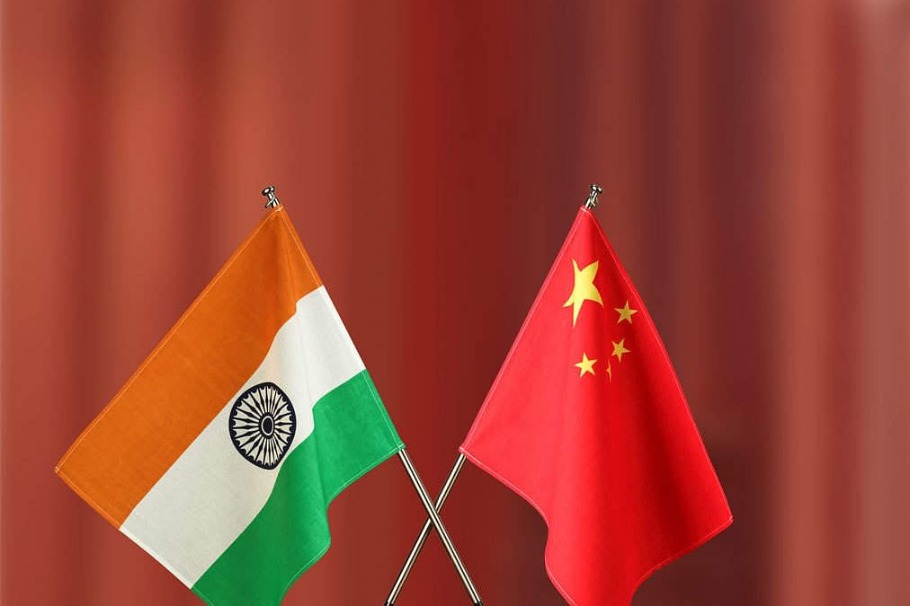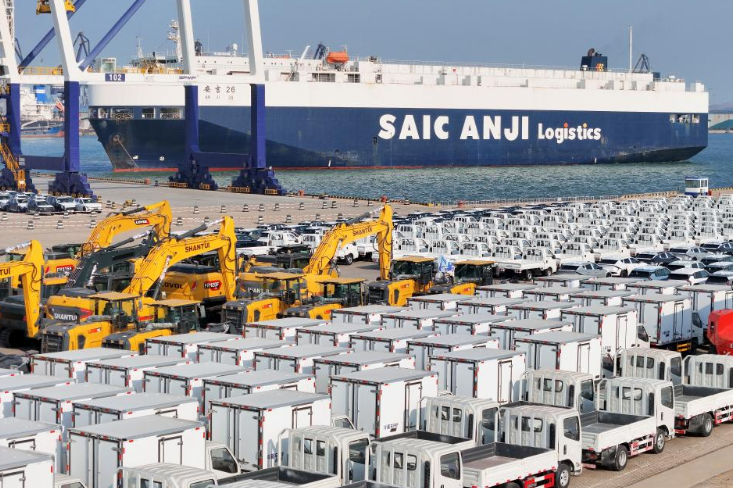China and India forge vibrant partnership

In the face of global uncertainty, China and India — celebrating 75 years of diplomatic relations — have a historic opportunity to forge a detente. This could have profoundly positive implications for world multi-polarization and global peace, according to an observer in the United Arab Emirates.
In an interview with China Daily, Habibul Khondker, a professor at the Department of Humanities and Social Sciences in Zayed University in Abu Dhabi, UAE, used the term "Chindia" to describe the potential synergistic rise of these two nations, suggesting a shift in global focus from West to East.
"Economically, India leads in software, while China excels in hardware and some software," he said. "A partnership between them is brilliant; together, they could become significantly more influential on the global stage."
His sentiment echoed remarks made by Chinese Foreign Minister Wang Yi who said in Beijing on March 7 that China and India should contribute to each other's success, adding that making the dragon and elephant dance is the only right choice.
Wang highlighted the responsibility of these major developing nations to lead the opposition to hegemonism and power politics. If they join hands, the democratization of international relations and development and the strengthening of the Global South will have a brighter future. "Supporting, instead of wearing each other down, and strengthening cooperation, instead of guarding against each other, is in our fundamental interests," he said.
China has long been India's top trading partner, with bilateral trade in 2024 reaching $138.48 billion, up 1.7 percent year-on-year, official data showed.
Khondker suggested that India's new generation of politicians should learn from Jawaharlal Nehru, India's first prime minister. Nehru implemented moderate economic reforms, pursued a policy of "positive neutrality" and became a key voice for non-aligned nations in the Global South.
As a globalization researcher, Khondker believes these two ancient civilizations can be positive forces for world peace. He points to China's history, arguing that for at least 500 years — from the Ming Dynasty (1368-1644) to before the Opium Wars in mid-19th century — it did not engage in widespread foreign conflict or oppression.
"China never invaded, never oppressed others. If we could convey this message that China's track record is one of peace, and that there's nothing to fear unless provoked — it would greatly benefit international relations," he said, contrasting this with the history of Western powers, noting the United States' near-constant involvement in warfare since World War II.
"The peaceful rise of Western great powers over the past 500 years simply never happened," Khondker said. "But China is different, don't judge it by your standard because China is doing its own thing in its own way."
Seventy-five years ago, India was one of the first countries to recognize the People's Republic of China and the first non-socialist country to establish diplomatic relations with it.
Despite some existing disputes, Khondker advocates for a strategic, long-term perspective on Sino-Indian relations and advises against allowing differences to overshadow the overall development of the relations. "Don't let the disputes be the only issue; put them aside," he said.
His interest in China dates back to his youth in Bangladesh, where Chairman Mao was viewed as a leading figure of socialism. This early fascination shaped his academic pursuits.
He later studied at the University of Dhaka, Carleton University and the University of Pittsburgh. Before moving to the UAE in 2006, he taught at the National University of Singapore and cultivated strong relationships with Chinese sociologists and scholars.
Khondker's visits to China in 1996, 2004 and 2017 left him with positive impressions, particularly regarding personal safety and security.
His connections and objective views on China led to his appointment to the board of directors of the Confucius Institute at Zayed University. He encourages his students to experience China firsthand, rather than relying solely on Western media narratives.
"Many of my students in the UAE have a very positive impression of China based on the information online. They are not completely molded by Western media and I always encourage them to go to China to experience it by themselves," he added. "My daughter is also learning Mandarin and I have promised to take her to China for sightseeing."
cuihaipei@chinadaily.cm.cn

































